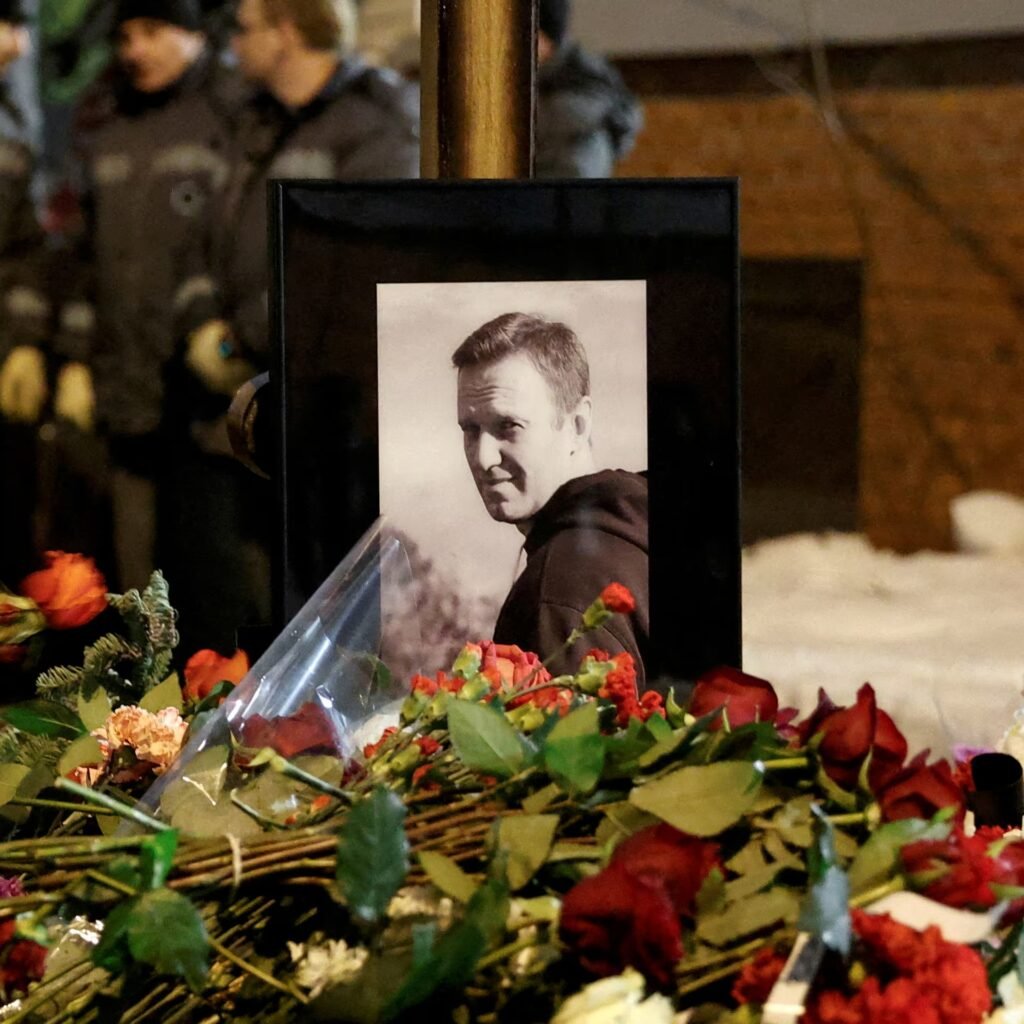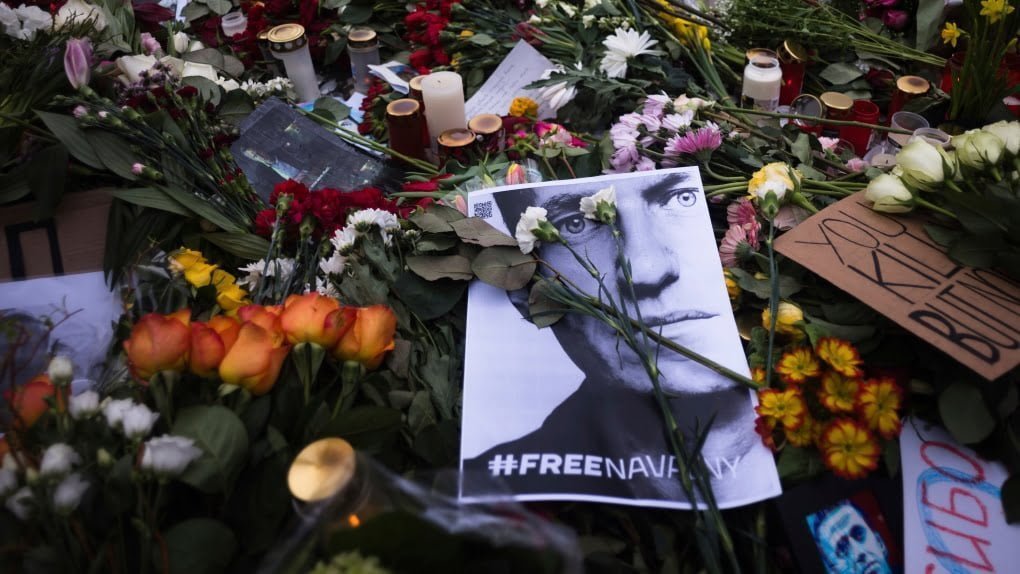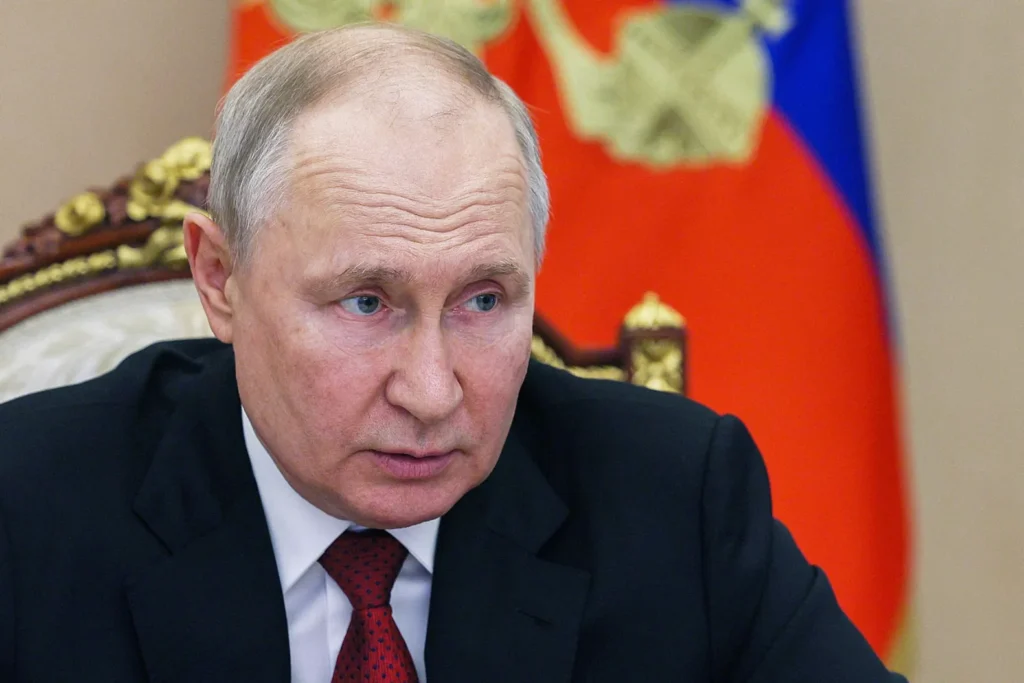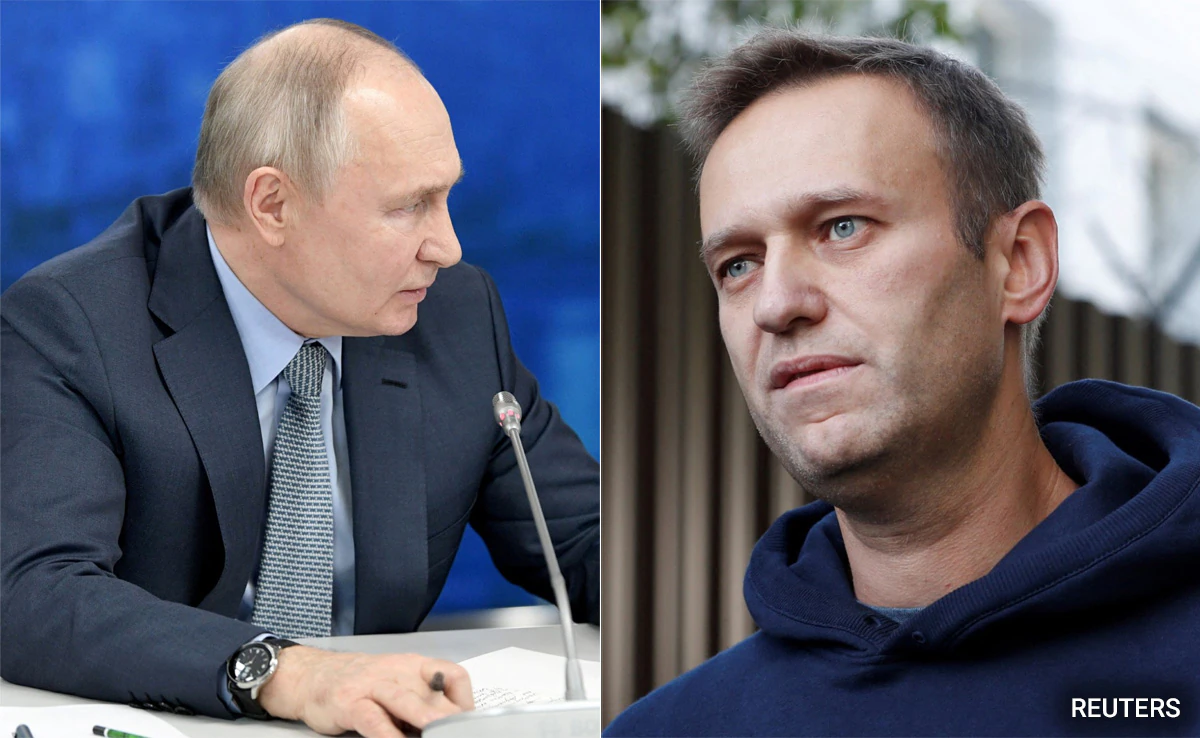Navalny’s death sparked international outrage and calls for a thorough investigation into the circumstances surrounding his demise. Many speculated that Putin, known for his iron grip on power and ruthless suppression of dissent, had ordered the assassination of his political rival.
However, the recent reports from U.S. intelligence officials shed new light on the situation. While it is widely believed that Putin was ultimately responsible for Navalny’s death, the lack of concrete evidence linking him directly to the assassination has made it difficult to definitively prove his involvement.
Nevertheless, the circumstances leading up to Navalny’s death raise serious questions about the Russian government’s role in his demise. The opposition leader had been targeted before, surviving a poisoning attempt in August 2020 that left him in a coma. Many pointed fingers at the Kremlin, accusing Putin of orchestrating the attack.
Furthermore, Navalny’s imprisonment and subsequent death while in custody have raised concerns about the treatment of political dissidents in Russia. Critics argue that the Russian government’s crackdown on opposition figures is a clear violation of human rights and an attempt to silence any dissenting voices.
The international community has been quick to condemn Navalny’s death and call for justice. World leaders, including U.S. President Joe Biden and European Union officials, have demanded a thorough and transparent investigation into the circumstances surrounding his demise.
While it may be difficult to definitively prove Putin’s direct involvement in Navalny’s death, the incident has further strained Russia’s already tense relationship with the West. The Kremlin’s handling of the case has been met with widespread criticism and has raised concerns about the state of democracy and human rights in the country.
As the investigation into Navalny’s death continues, the world will be watching closely for any new developments. The truth behind his assassination is not only crucial for seeking justice for Navalny and his family but also for holding the Russian government accountable for its actions.

Despite the lack of a smoking gun directly implicating Putin in Navalny’s death, there are several factors that point to his involvement. The intelligence community’s inability to find concrete evidence may be due to the secretive nature of such operations, where orders are often given verbally or through intermediaries to maintain plausible deniability.
Furthermore, Putin’s track record of suppressing political opposition and silencing dissent raises suspicions about his role in Navalny’s assassination. Navalny, a prominent critic of the Russian government, had been targeted multiple times before, including a poisoning attempt in 2020 that was attributed to the Russian state. These previous incidents suggest a pattern of targeting individuals who pose a threat to Putin’s regime.
In addition, the timing of Navalny’s death is significant. It occurred just days after he returned to Russia from Germany, where he had been recovering from the poisoning. This timing raises questions about the motive behind the assassination and whether it was meant to send a message to other critics of the regime.
While President Biden did not directly accuse Putin of ordering Navalny’s death, his statement implicating Putin’s actions implies a level of responsibility. The U.S. government’s assessment likely takes into account intelligence reports, analysis of the situation, and discussions with allies who may have additional information.
Nevertheless, the lack of a smoking gun poses challenges in holding Putin accountable for Navalny’s death. It may complicate efforts to impose sanctions or take other punitive measures against Russia. Without irrefutable evidence, there will always be room for doubt and plausible deniability on the part of the Russian government.
As the investigation into Navalny’s death continues, international pressure will be crucial in demanding transparency and accountability from the Russian government. The lack of concrete evidence should not deter the international community from seeking justice for Navalny and holding those responsible accountable.

Despite the lack of direct evidence linking Putin to the timing of Navalny’s death, it is important to consider the broader political context in which this event occurred. Putin’s reelection campaign was already facing significant challenges, with widespread protests and growing discontent among the population. Navalny, a charismatic and influential critic of the government, had been gaining momentum and support, posing a real threat to Putin’s hold on power.
Navalny’s death, whether orchestrated by Putin or not, undoubtedly had a profound impact on the political landscape in Russia. It sent shockwaves through the opposition movement, leaving many feeling demoralized and fearful for their own safety. The loss of such a prominent figure also had a chilling effect on dissent, further solidifying Putin’s grip on power.
Moreover, the timing of Navalny’s death cannot be ignored. It occurred just weeks before the election, a crucial period during which political maneuvering and strategic moves are common. While it may be difficult to establish a direct link between Putin and the assassination, the fact that it conveniently eliminated a significant threat to his reelection cannot be overlooked.
Furthermore, the lack of direct evidence linking Putin to the timing of Navalny’s death does not necessarily absolve him of any involvement. Putin has long been known for his ability to operate in the shadows, using proxies and plausible deniability to achieve his objectives. This modus operandi makes it challenging to uncover concrete evidence that directly points to his involvement.
Ultimately, the political context surrounding Navalny’s death raises legitimate concerns about the integrity of the electoral process in Russia and the lengths to which Putin and his regime are willing to go to maintain their grip on power. While we may never know the full truth behind Navalny’s assassination, it serves as a stark reminder of the challenges faced by those who dare to oppose the Kremlin and the high stakes involved in Russian politics.
Despite the Russian officials’ denial, there is mounting evidence that points towards their involvement in Navalny’s poisoning and subsequent death. The international community has been closely monitoring the situation and scrutinizing the Russian government’s response.
Firstly, the timing of Navalny’s poisoning raises suspicions. It occurred just months before the Russian parliamentary elections, where Navalny was planning to run as a candidate. This suggests that his political ambitions posed a threat to those in power, and they may have seen him as a political rival.
Furthermore, the use of a highly toxic nerve agent, Novichok, in the attack is significant. Novichok is a chemical weapon developed by the Soviet Union, and its use in the poisoning of a prominent opposition figure like Navalny raises questions about who would have access to such a dangerous substance. It is highly unlikely that a rogue element within the Russian government would have been able to obtain Novichok without the knowledge and approval of higher authorities.
Additionally, the Russian government’s response to the incident has been questionable. Instead of conducting a thorough and transparent investigation, they have obstructed efforts to uncover the truth. Navalny’s team has repeatedly requested access to the evidence and medical records, but their requests have been denied or ignored. This lack of cooperation only raises suspicions about what the Russian government may be trying to hide.
Moreover, there have been numerous cases in the past where critics of the Russian government have been targeted and silenced. The assassinations of journalist Anna Politkovskaya and former Russian spy Alexander Litvinenko are just a few examples. These incidents, coupled with the pattern of repression against political opponents, suggest a systematic effort to eliminate dissent and maintain control.
While concrete evidence linking Putin directly to Navalny’s poisoning may be lacking, the circumstantial evidence and the Russian government’s actions cannot be ignored. The denials from Russian officials only serve to further fuel suspicions and raise questions about their credibility. The international community must continue to demand a thorough and impartial investigation into Navalny’s death, ensuring that those responsible are held accountable for their actions.
The Consequence of Putin’s Actions

While there may be no smoking gun directly linking Putin to Navalny’s death, it is essential to recognize the consequences of Putin’s actions. Navalny’s death, whether ordered by Putin or not, is a reflection of the oppressive environment in which opposition figures operate in Russia.
Navalny’s imprisonment and subsequent death highlight the challenges faced by those who dare to speak out against the Russian government. It serves as a reminder of the dangers faced by individuals who advocate for change and challenge the status quo.
Regardless of Putin’s direct involvement, the circumstances surrounding Navalny’s death raise concerns about the state of democracy and human rights in Russia. The lack of transparency and accountability in this case further erode trust in the Russian government.
Moreover, Navalny’s death has reverberated beyond Russia’s borders, causing international outrage and condemnation. World leaders and human rights organizations have expressed deep concern over the situation, calling for an independent investigation into Navalny’s death and demanding justice for his family and supporters. The incident has strained Russia’s relations with the international community, further isolating the country on the global stage.
The consequences of Putin’s actions extend beyond the immediate aftermath of Navalny’s death. They have far-reaching implications for the future of dissent and political opposition in Russia. The fear and intimidation tactics employed by the Russian government have a chilling effect on free speech and the exercise of democratic rights. Many individuals who once spoke out against the government now find themselves silenced, fearing for their safety and the safety of their loved ones.
This climate of fear and suppression not only stifles political dissent but also hinders social progress and economic development. Innovation and creativity thrive in an environment where different viewpoints are encouraged and debated. By suppressing opposition voices, Putin’s actions hinder the potential growth and prosperity of the Russian people.
Furthermore, the consequences of Putin’s actions extend to the erosion of trust in the Russian government and its institutions. The lack of transparency and accountability surrounding Navalny’s death has only deepened the skepticism and disillusionment felt by many Russians. This loss of trust undermines the legitimacy of the government and makes it increasingly difficult for the Russian people to have faith in their leaders.
In conclusion, while the direct link between Putin and Navalny’s death may remain elusive, the consequences of Putin’s actions are undeniable. The oppressive environment for opposition figures, the international condemnation, the stifling of dissent, and the erosion of trust all contribute to a bleak future for democracy and human rights in Russia. It is crucial for the international community to continue to shine a spotlight on these issues and hold the Russian government accountable for its actions.
The Role of International Organizations
International organizations play a crucial role in exerting pressure on Russia to address the issues surrounding Navalny’s death and ensure justice is served. The United Nations, for instance, can use its platform to condemn any violations of human rights and call for a thorough and transparent investigation into Navalny’s case.
Additionally, the European Union can impose targeted sanctions on Russian officials believed to be involved in the suppression of political dissent and human rights abuses. These sanctions can include travel bans and asset freezes, which would send a strong message to the Russian government that such actions will not go unnoticed or unpunished.
Furthermore, the Organization for Security and Cooperation in Europe (OSCE) can monitor the situation closely and provide independent assessments of Russia’s compliance with international human rights standards. By documenting any violations and presenting their findings to the international community, the OSCE can help build a solid case for the need for accountability and justice.
It is important for international organizations to work together and coordinate their efforts in pressuring Russia. By presenting a united front, they can amplify their impact and increase the likelihood of positive change. This can include joint statements, resolutions, and diplomatic initiatives aimed at holding Russia accountable for its actions and ensuring the protection of democratic values and human rights.
Moreover, individual countries can also play a significant role in exerting pressure on Russia. They can impose their own sanctions on Russian officials, limit diplomatic ties, and support civil society organizations within Russia that advocate for democracy and human rights. By doing so, these countries can demonstrate their commitment to upholding democratic values and send a clear message to the Russian government that their actions will have consequences.
In conclusion, international pressure is crucial in addressing the issues surrounding Navalny’s death. By utilizing the platforms and mechanisms available through international organizations, countries can work together to demand transparency, accountability, and justice. It is only through a united and persistent effort that real change can be achieved, ensuring that Navalny’s death is not in vain and that the rights of all citizens are protected.


















